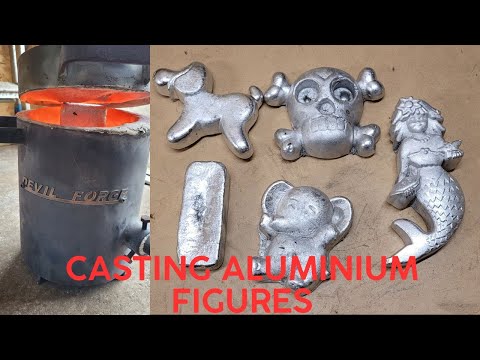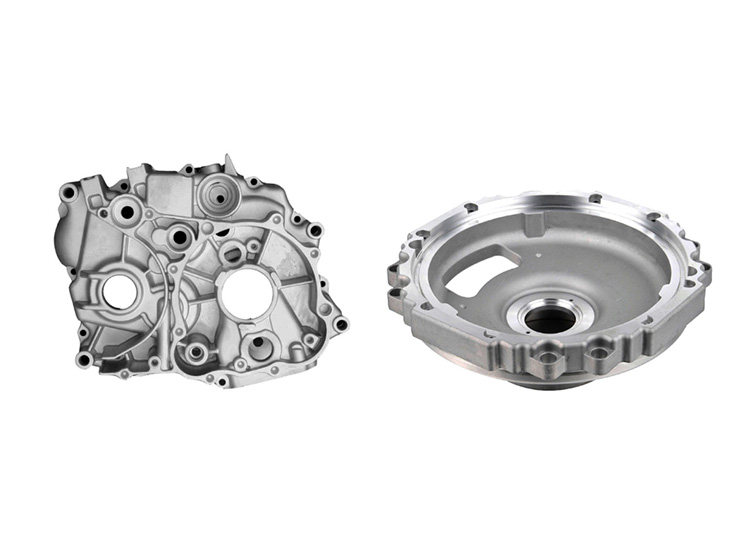The 30-Second Trick For Stahl Specialty Company
The 30-Second Trick For Stahl Specialty Company
Blog Article
Facts About Stahl Specialty Company Revealed
Table of ContentsThe Basic Principles Of Stahl Specialty Company The Definitive Guide for Stahl Specialty CompanyStahl Specialty Company Fundamentals ExplainedThe 10-Minute Rule for Stahl Specialty CompanyThe Best Guide To Stahl Specialty Company
The refined difference depends on the chemical material. Chemical Contrast of Cast Aluminum Alloys Silicon promotes castability by lowering the alloy's melting temperature and boosting fluidity during casting. It plays an essential duty in enabling detailed mold and mildews to be loaded properly. In addition, silicon contributes to the alloy's stamina and put on resistance, making it important in applications where longevity is important, such as vehicle parts and engine parts.It likewise enhances the machinability of the alloy, making it easier to refine into ended up items. In this means, iron adds to the total workability of light weight aluminum alloys.
Manganese contributes to the stamina of light weight aluminum alloys and enhances workability. Magnesium is a lightweight component that supplies strength and impact resistance to aluminum alloys.
It permits the production of light-weight parts with superb mechanical residential or commercial properties. Zinc enhances the castability of aluminum alloys and assists manage the solidification procedure during casting. It improves the alloy's strength and hardness. It is frequently discovered in applications where detailed shapes and great details are needed, such as decorative castings and particular automotive parts.
All about Stahl Specialty Company
Since aluminum-silicon alloys have excellent spreading residential properties, high gas residential or commercial properties, simple procedures, and exceptional corrosion resistance, aluminum-silicon alloys are most commonly made use of in the die-casting market at home and abroad. At the exact same time, aluminum-silicon alloys are likewise reasonably early and commonly recognized alloys created and made use of in die-casting. After continual study and enhancement, the majority of the present worldwide mainstream aluminum-silicon alloys have been wrapped up and are nothing even more than A356, A360, A380, ADC12, B390, and A413.
The primary thermal conductivity, tensile strength, return stamina, and elongation vary. Among the above alloys, A356 has the highest possible thermal conductivity, and A380 and ADC12 have the least expensive.

Stahl Specialty Company - Questions
In accuracy spreading, 6063 is fit for applications where intricate geometries and high-grade surface area finishes are extremely important. Examples consist of telecommunication units, where the alloy's exceptional formability enables for sleek and aesthetically pleasing designs while maintaining architectural honesty. Similarly, in the Lights Solutions market, precision-cast 6063 parts create elegant and effective illumination components that call for detailed forms and great thermal performance.
(https://www.mixcloud.com/stahlspecialc/)
It leads to a finer surface finish and far better deterioration resistance in A360. Moreover, the A360 exhibits exceptional elongation, making it optimal for facility and thin-walled components. In precision spreading applications, A360 is appropriate for industries such as Customer Electronics, Telecommunication, and Power Tools. aluminum metal casting. Its enhanced fluidness enables complex, high-precision parts like smartphone coverings and interaction device housings.

In precision casting, aluminum 413 shines in official statement the Customer Electronics and Power Tools markets. This alloy's remarkable rust resistance makes it an excellent choice for outdoor applications, ensuring lasting, resilient products in the stated markets.
How Stahl Specialty Company can Save You Time, Stress, and Money.
The light weight aluminum alloy you choose will considerably impact both the casting procedure and the residential properties of the last item. Because of this, you must make your decision meticulously and take an enlightened method.
Establishing the most appropriate light weight aluminum alloy for your application will indicate evaluating a wide variety of characteristics. The very first category addresses alloy features that influence the production process.
The alloy you choose for die spreading straight influences several elements of the spreading process, like exactly how simple the alloy is to collaborate with and if it is prone to casting problems. Hot splitting, also referred to as solidification cracking, is a regular die casting issue for aluminum alloys that can result in internal or surface-level splits or fractures.
8 Simple Techniques For Stahl Specialty Company
Particular light weight aluminum alloys are more vulnerable to warm splitting than others, and your choice needs to consider this. An additional typical defect located in the die casting of aluminum is die soldering, which is when the cast adheres to the die walls and makes ejection difficult. It can harm both the actors and the die, so you should search for alloys with high anti-soldering homes.
Deterioration resistance, which is already a notable feature of light weight aluminum, can differ significantly from alloy to alloy and is an essential particular to consider relying on the environmental conditions your item will certainly be subjected to. Use resistance is one more home typically looked for in aluminum items and can distinguish some alloys.
Report this page